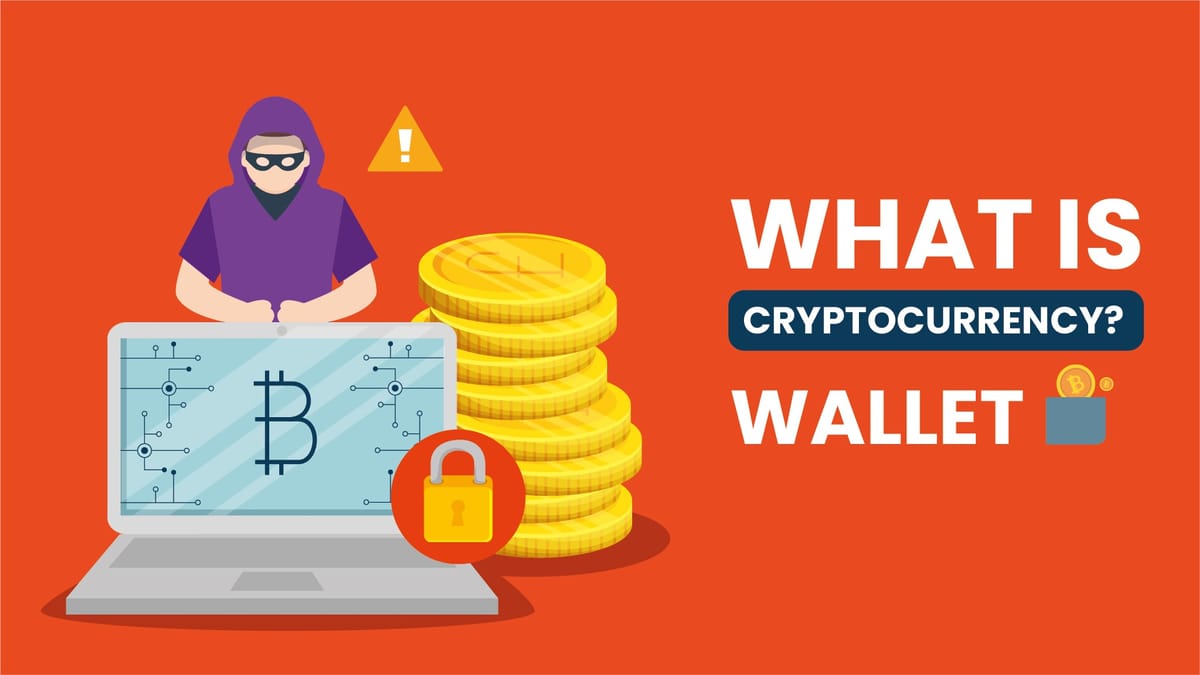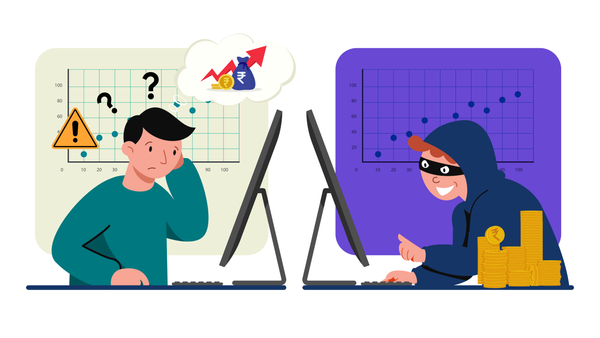How to Secure Your Cryptocurrency? Part-2
Cryptocurrency security hinges on private key protection. Understand wallet types, transaction risks, and scams to safeguard your digital assets effectively.

As mentioned in How to Secure Your Cryptocurrency? Part-1, cryptocurrencies are secure in form and are securely stored by blockchain technology. To this end, cryptocurrency threats arise from the storage of private keys in cryptocurrency wallets and unnecessary personal identity connections to a public address.
Cryptocurrency Wallets
What is a Cryptocurrency Wallet?
As a rule of thumb, you can only store your cryptocurrency private keys in a crypto wallet. Crypto wallets are an interface that connects you to your blockchain transaction records or digital currencies. Unless you have a programming background, you will need a crypto wallet to connect your private key to your public address when transferring your digital currencies.
There are three main types of crypto wallets. They include hardware and software wallets.
Software wallets
Software wallets are the most common form of crypto wallets. There are web wallets, such as the popular MetaMask, that interact with blockchain networks such as Ethereum via a web browser. You can download a wallet application to your desktop or mobile devices and store your private keys in your gadget’s hard drive.
Software wallets are referred to as hot wallets because they are connected to the internet by virtue of their storage. Hot wallets carry the most risk since all hackers need to do is hack your browser, or device’s hard disk and access your private key.
Hardware wallets
Hardware wallets are safer private key storage devices, since they are physical devices that you can disconnect from the internet when not in use. A hardware wallet has electronic components that link to blockchain networks during transactions.
Hardware wallets are also known as cold wallets and include paper wallets. Cold wallets are not as user-friendly as hot wallets are, since you have to interface them with the blockchain network every time you connect to the internet.
Principal Forms of Cryptocurrency Threats
Transactions Risks
Since digital currency transactions are recorded on immutable blockchain ledgers, they are irreversible. Once sent and confirmed, you cannot reverse digital currency transactions on decentralized networks such as Ethereum or Bitcoin.
You can only receive your transaction back if a recipient uses their private key and sends your digital currencies back to you. Decentralized digital currencies do not have third parties, such as banks, lawyers, or law enforcement officers.
The blockchain nodes create a trustless environment that supports direct payments between senders and receivers. To this end, digital currency transactions do not have legal protections like traditional fiat transactions do.
If you have a dispute over purchases or other agreements, you might not get much help from the network, because all parties are pseudonymous. On top of that, there is no one central governing authority that settles disputes.
Private Key Risks
- Secure blockchains use strong cryptography when creating private keys. Strong private key credentials are long enough to suit their encryption needs and are of high quality. Weak cryptography creates risky private keys. Incorrect use of private keys will not provide protection and could provide attackers with data that helps them crack its encryption.
- Overuse of keys makes them susceptible to cracking. This is especially so for older algorithms and high-volume key use. To this end, you should rotate your keys to avoid compromise.
- Not your keys, not your bitcoin, is a common mantra in BTC trading circles. What it means is that any person who gets a hold of your private keys can take your cryptocurrency investment. To this end, storing your private key or wallet data in a database or servers where hackers lurk fishing for prey is ill-advised.
- Private keys may be a product of cryptography, but you can secure them further through encryption. Store private keys in encrypted form and decrypt them in a tamper-proof environment when in use.
- Delete any private keys that are not in use or that have expired to prevent accidental compromise.
- Do not hand over your private keys to other parties’ control unless you are ready to foot the bill of private key loss. This is a very crucial aspect when dealing with centralized cryptocurrency exchanges. When you purchase your cryptocurrencies through an exchange, what you have essentially done is receive a private key to these assets in their hot wallet.
- Cryptocurrency exchanges store a lot of user private keys, so they are a prime target for hackers. Over $2.58 billion worth of user funds have been stolen from cryptocurrency exchanges since 2012. Most of these funds were lost when hackers infiltrated users’ private keys from exchange wallets.
- In the most recent cryptocurrency exchange hacking, Liquid exchange investors lost $97 million worth of funds to hackers when the entities obtained access to Liquid’s hot wallet.
- Your private key storage system should be resilient to protect the integrity of your private keys. When you lose your wallet storage device to a disaster, fault, or accident and do not have any backup, you will lose your cryptocurrencies permanently.
- As an illustration, Stefan Thomas made news in early 2021, when he lost a password to his 7,002 Bitcoin IronKey digital cold wallet.
Cryptocurrency Scam Risks
Many cryptocurrency holders also lose their holdings to fraud and scammers. You can only lose your cryptocurrencies if you hand over your private keys to a scammer. Most scammers achieve this feat by presenting scams as business or investment opportunities. Some common crypto scams include;
- Get quick rich crypto products
- Crypto Ponzi schemes, where you pay in digital currencies to recruit others into a business program.
- Unsolicited business or investment propositions from ‘professional’ investment managers. These entities will promise to manage your crypto assets on your behalf, and then appropriate your private keys.
- Unsolicited offers to mine or change cryptocurrencies to cash on your behalf
- Blockchain platforms that make claims of huge returns to early investors show no use case or technology proof.
- Blackmail emails that extort you for cryptocurrency payments, such as the Colonial Pipeline incident.
- Social media get-right scams involving celebrities or influencers are very common
- Some countries have enacted cryptocurrency regulations. To this end, they have strict taxation, anti-money laundering, and Know Your Customer rules for cryptocurrency users.





